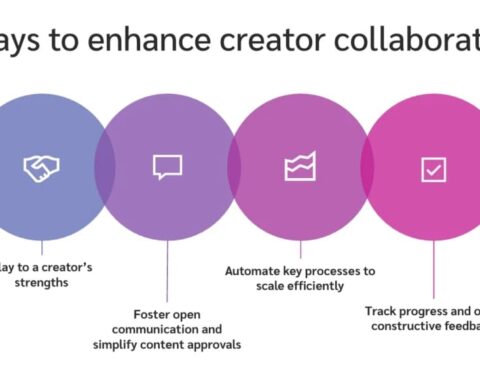Why Regular Eye Care Should Be Your Priority
Living abroad as a French expatriate brings countless adventures, cultural discoveries, and professional opportunities. However, amidst the excitement of adapting to new environments, many expats overlook a critical aspect of their health: their vision. Recent studies reveal that French citizens living overseas are significantly more likely to delay or skip routine eye examinations compared to their counterparts back home, creating a silent health crisis that could have lasting consequences.
The statistics are alarming. According to international health surveys, nearly 40% of French expatriates haven’t had an eye examination in over three years, compared to just 18% of residents in France. This disparity isn’t merely about convenience—it represents a fundamental shift in healthcare priorities that could jeopardize long-term visual health and overall well-being.
The Unique Challenges Facing French Expats and Health crisis
Navigating Foreign Healthcare Systems
One of the primary barriers French expatriates face is understanding and accessing healthcare systems that operate differently from the familiar French model. The comprehensive social security system in France, with its emphasis on preventive care and regular check-ups, doesn’t translate directly to other countries. Many expats find themselves confused by insurance requirements, referral processes, and the varying standards of care available in their new homes.
In countries like the United States, for instance, the healthcare system’s complexity can be overwhelming. Without the automatic coverage and streamlined processes French citizens are accustomed to, many simply postpone non-urgent medical appointments, including routine eye care. This delay can be particularly problematic because many serious eye conditions develop gradually and without obvious symptoms in their early stages.
Language and Cultural Barriers
Communication challenges compound the healthcare access problem. Medical terminology, insurance jargon, and cultural differences in patient-doctor relationships can create anxiety around seeking care. Many French expats report feeling uncomfortable discussing their health concerns in a second language, leading them to avoid appointments unless absolutely necessary.
Cultural differences in healthcare approaches also play a role. While French medicine emphasizes regular preventive care, some countries have more reactive healthcare cultures where people typically seek treatment only when problems arise. This cultural shift can inadvertently influence expat behavior, leading to the adoption of less proactive health management practices.
The Cost of Delayed Eye Care Health Crisis
Progressive Vision Problems
The consequences of delayed eye care extend far beyond simple vision correction needs. Many serious eye conditions, including glaucoma, diabetic retinopathy, and age-related macular degeneration, develop slowly and often without noticeable symptoms until significant damage has occurred. By the time vision problems become apparent, treatment options may be limited, and permanent vision loss may have already occurred.

Glaucoma, often called the “silent thief of sight,” is particularly concerning for expatriates. This condition affects over 70 million people worldwide and can cause irreversible blindness if left untreated. However, when caught early through regular screenings, glaucoma can be effectively managed with medication or minor procedures, preserving vision for decades.
Impact on Professional and Personal Life
For French expatriates, whose careers often depend on their ability to adapt and perform in competitive international environments, vision problems can have devastating professional consequences. Declining visual acuity, eye strain, and untreated conditions can affect job performance, limit career advancement opportunities, and impact overall quality of life.
The digital demands of modern work environments exacerbate these concerns. Extended screen time, common in many expat professions, can lead to digital eye strain, dry eyes, and accelerated vision changes. Without regular monitoring and appropriate interventions, these issues can compound over time, affecting both professional productivity and personal comfort.
Understanding Modern Eye Health Risks
Digital Eye Strain and Blue Light Exposure
The modern expatriate lifestyle often involves extensive screen time across multiple devices. Working remotely, staying connected with family back home, and navigating digital services in a new country all contribute to increased digital eye strain. This condition, characterized by dry eyes, blurred vision, headaches, and neck strain, has become increasingly common among international professionals.
Blue light exposure from digital devices has also raised concerns among eye care professionals. While research is ongoing, some studies suggest that prolonged exposure to blue light may contribute to retinal damage over time and disrupt sleep patterns, which can indirectly affect eye health through reduced tear production and increased inflammation.
Environmental Factors
Different geographical locations present unique environmental challenges for eye health. Expatriates moving from France’s temperate climate to areas with intense sunlight, high altitude, or extreme weather conditions may experience new vision-related challenges. Increased UV exposure, dry climates, and air pollution can all impact eye health in ways that weren’t concerns in their home country.
For example, French expatriates living in sunny climates like California, Australia, or the Middle East face significantly higher UV exposure than they experienced in France. Without proper protection and regular monitoring, this increased exposure can accelerate the development of cataracts, macular degeneration, and other UV-related eye conditions.
Building a Proactive Eye Health Strategy
Establishing Care in Your New Country
The key to maintaining optimal eye health as an expatriate is establishing a relationship with qualified eye care professionals early in your relocation process. Research local options before you need urgent care, and don’t wait for problems to develop. Many expatriate communities, particularly in major cities, have access to comprehensive eye care services in Chicago and other metropolitan areas that cater to international populations and understand the unique needs of expat patients.
When selecting an eye care provider, consider factors beyond just convenience and cost. Look for practitioners who are experienced with international patients, understand insurance complexities, and can communicate effectively in your preferred language. Many major cities have multilingual practices or providers who specifically serve expatriate communities.
Technology and Telemedicine Solutions
The rise of telemedicine has created new opportunities for expatriates to maintain continuity of care. Some eye care providers now offer virtual consultations for certain conditions, medication management, and follow-up appointments. While comprehensive eye examinations still require in-person visits, telemedicine can help bridge gaps in care and provide valuable support between regular check-ups.
Mobile health applications and wearable devices are also becoming valuable tools for monitoring eye health. Apps that remind users to take screen breaks, track symptoms, or monitor medication adherence can help expatriates maintain better eye health habits despite busy international lifestyles.
Creating Sustainable Health Habits Abroad
Integrating Eye Care into Expatriate Life
Successful expatriates develop systems and routines that help them maintain their health while managing the demands of international living. This includes scheduling regular eye examinations just as you would schedule other important appointments, understanding your insurance coverage and benefits, and staying informed about eye health risks specific to your new environment.
Consider creating a health calendar that includes annual eye exams, regular prescription updates, and seasonal check-ins for conditions like allergies or dry eyes that may be affected by climate changes. Many successful expatriates also maintain health records that can be easily shared between providers, ensuring continuity of care even when moving between countries.
Building Support Networks
Connecting with other French expatriates and international communities can provide valuable insights into navigating local healthcare systems. Online forums, expatriate groups, and professional associations often share recommendations for healthcare providers, insurance tips, and strategies for maintaining health while living abroad.
These networks can be particularly valuable for sharing experiences about specific eye care challenges, such as finding contact lens solutions in different countries, managing prescriptions across borders, or identifying providers who understand the unique needs of international patients.
Conclusion
The expatriate experience offers incredible opportunities for personal and professional growth, but it shouldn’t come at the expense of your health. Regular eye care is not a luxury—it’s an essential component of maintaining the quality of life that allows you to fully embrace your international adventure.
By understanding the unique challenges facing French expatriates, recognizing the importance of proactive eye care, and developing sustainable health management strategies, you can protect your vision while pursuing your global ambitions. Remember that investing in your eye health today is investing in your ability to see and experience all the wonders that your expatriate journey has to offer.
Don’t let the excitement of living abroad overshadow the importance of routine healthcare. Your future self—and your continued ability to explore the world with clear, healthy vision—will thank you for making eye care a priority today.









